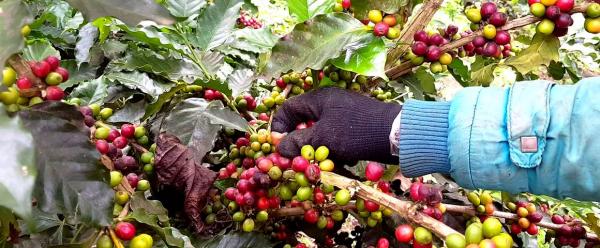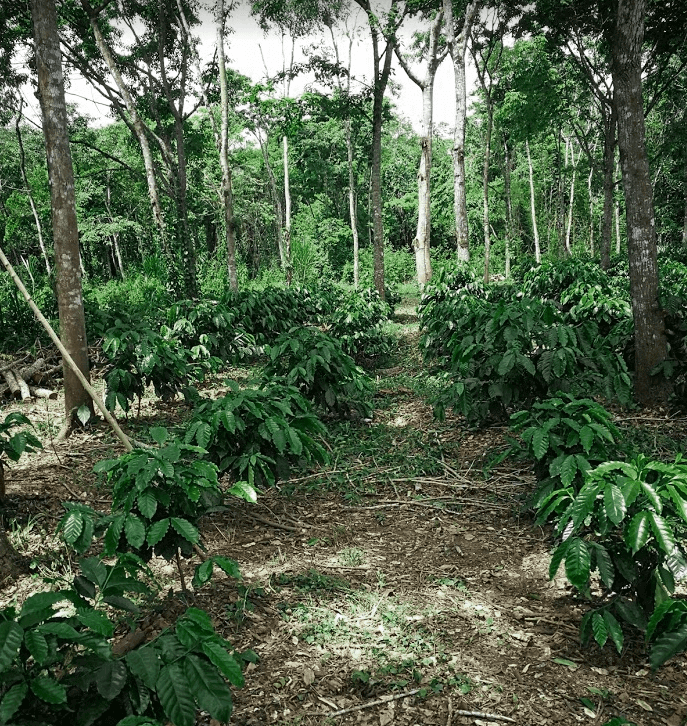Issues
Climate change is having a major impact on coffee plantations. In order to secure production, some producers and researchers are turning to agroforestry, a method that helps to increase the resilience of crops to new climate pressure. However, few coffee species are suited to these methods. With this in mind, the aim of BREEDCAFS is to increase the existing range of varieties, in order to produce coffee plants that can be grown in agroforestry systems.
In addition to building resilience to climate change, the shift to agroforestry is also aimed at reducing dependence on agricultural inputs.
Description
Over four years, producers and researchers will attempt to adapt crop improvement strategies to more sustainable cropping practices, in agroforestry systems.
New hybrid varieties, produced by CIRAD with its partners (Promecafe-Catie Ecom and WRC), are being tested in line with several temperature rise and CO2 enrichment scenarios, under various water and light regimes. Tests are being conducted in France, Portugal, Nicaragua, Cameroon and Vietnam. The idea is to identify genes for breeding highly productive varieties suited to agroforestry.
Those varieties are then released to agroforestry clusters, directly linking coffee roasters and producers. Two clusters are thus being tested over the four years in Vietnam, Cameroon and Nicaragua.
Impacts
- Coffee production will be more resistant to climate change, use fewer inputs and be more environmentally friendly.
- The clusters will result in a new concept of high quality coffee that is 100% traceable, grown in agroforestry systems, carbon neutral and ensures fair producer prices.
Results
For several decades now, CIRAD has been convinced that the future of coffee lies in agroforestry. Its research is aimed at improving varieties and cropping techniques, and assessing the performance of this type of agroecological cropping system. Over four years, the EU H2020 BREEDCAFS project worked across these scientific fronts, in Cameroon, Nicaragua, Vietnam and at several European organizations (roasters, universities and research centres). We take stock of its results, which could change the entire value chain.
Contract partners
- Industry: Illy Caffe Italy, Eurofins, Arvid Nordquist ;
- Academia: UCPH, NUI Galway, IRD , University of Lisbon, University of Montpellier, Nova ID FCT, Max Planck, Forschungszentrum Julich GMBH Germany, NOMAFSI, AGI, IRAD, University of Arizona ;
- Professional organizations and NGOs: WRC, NOMAFSI, Nicafrance Foundation and SNV.


























